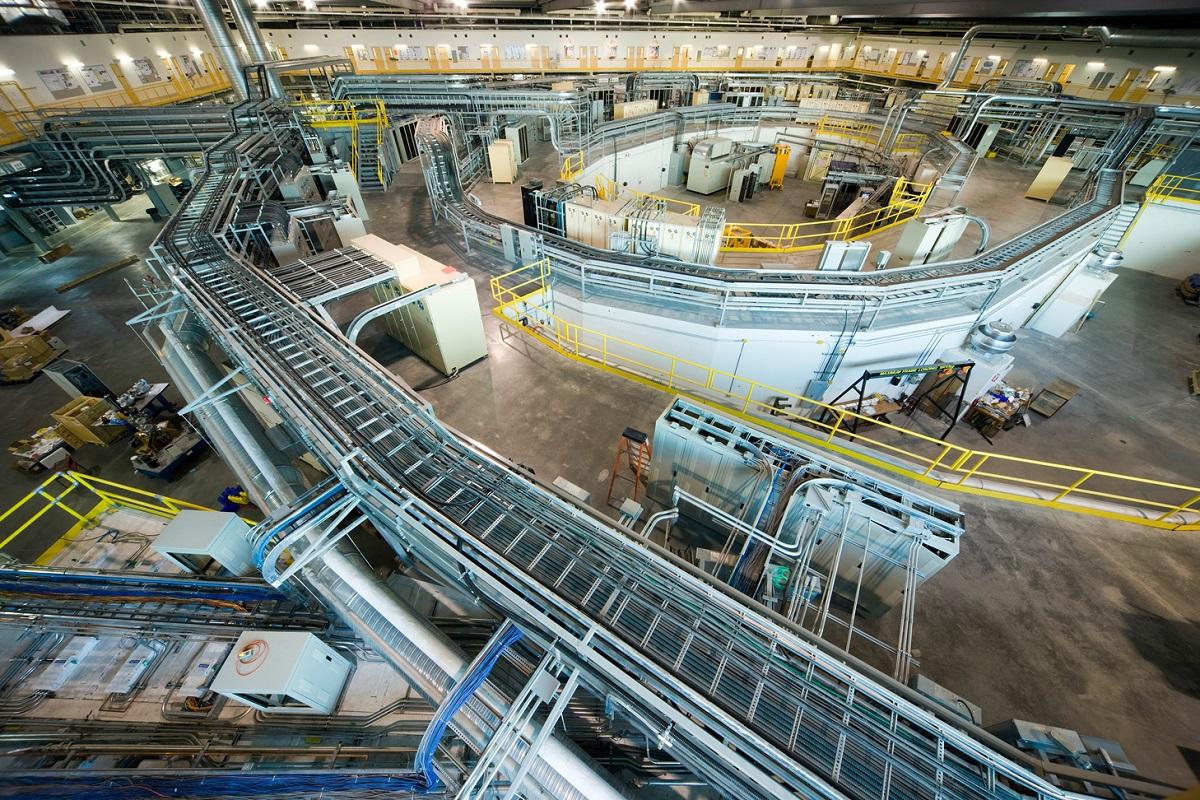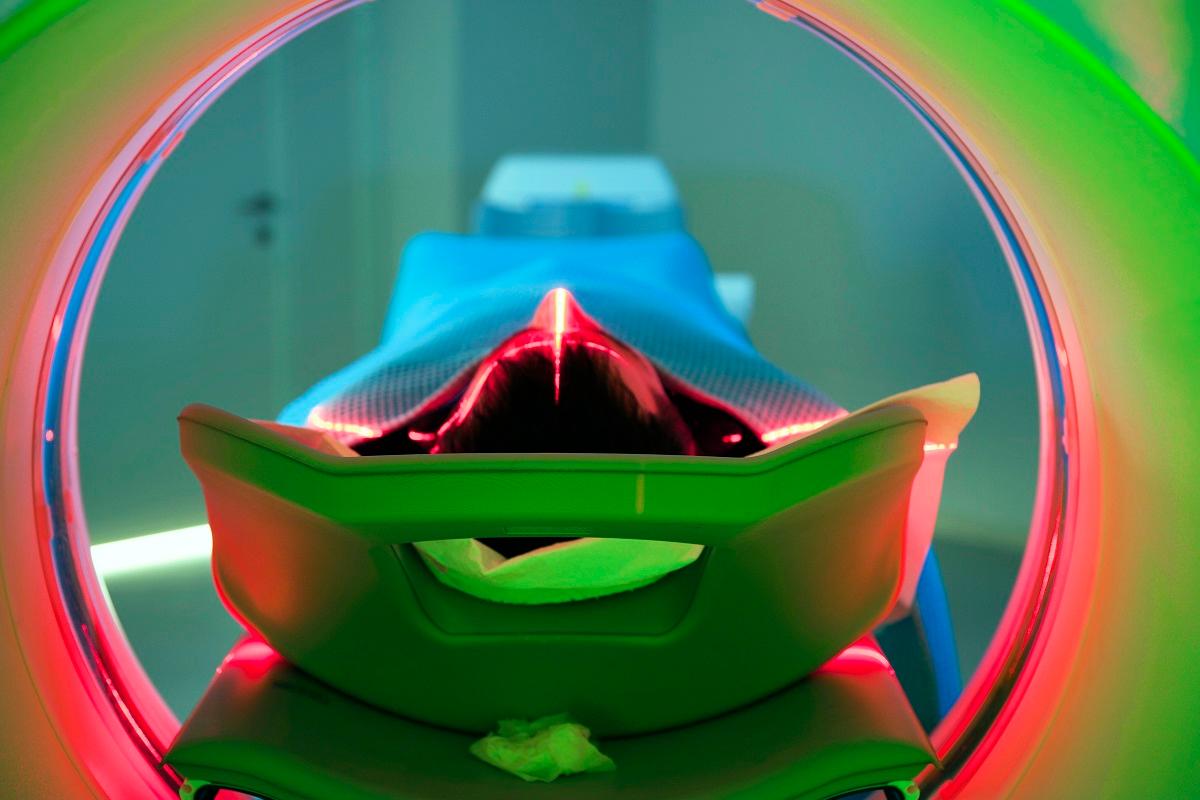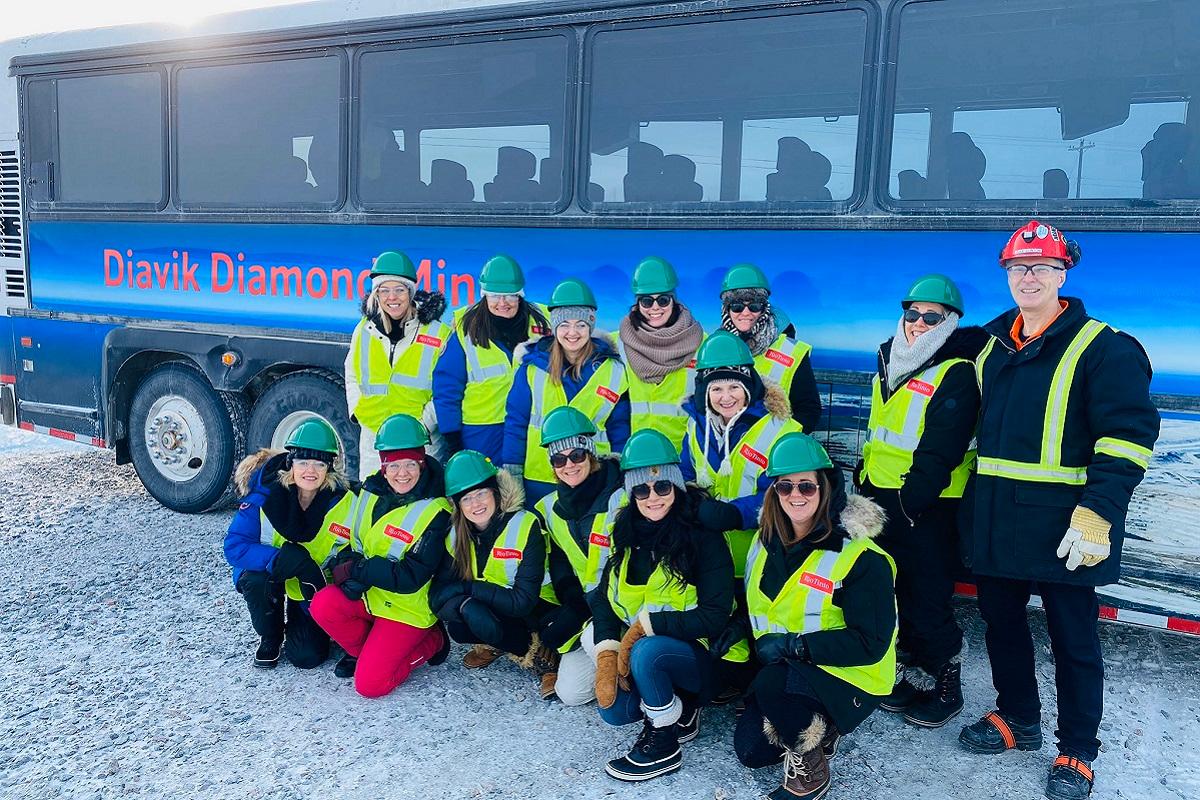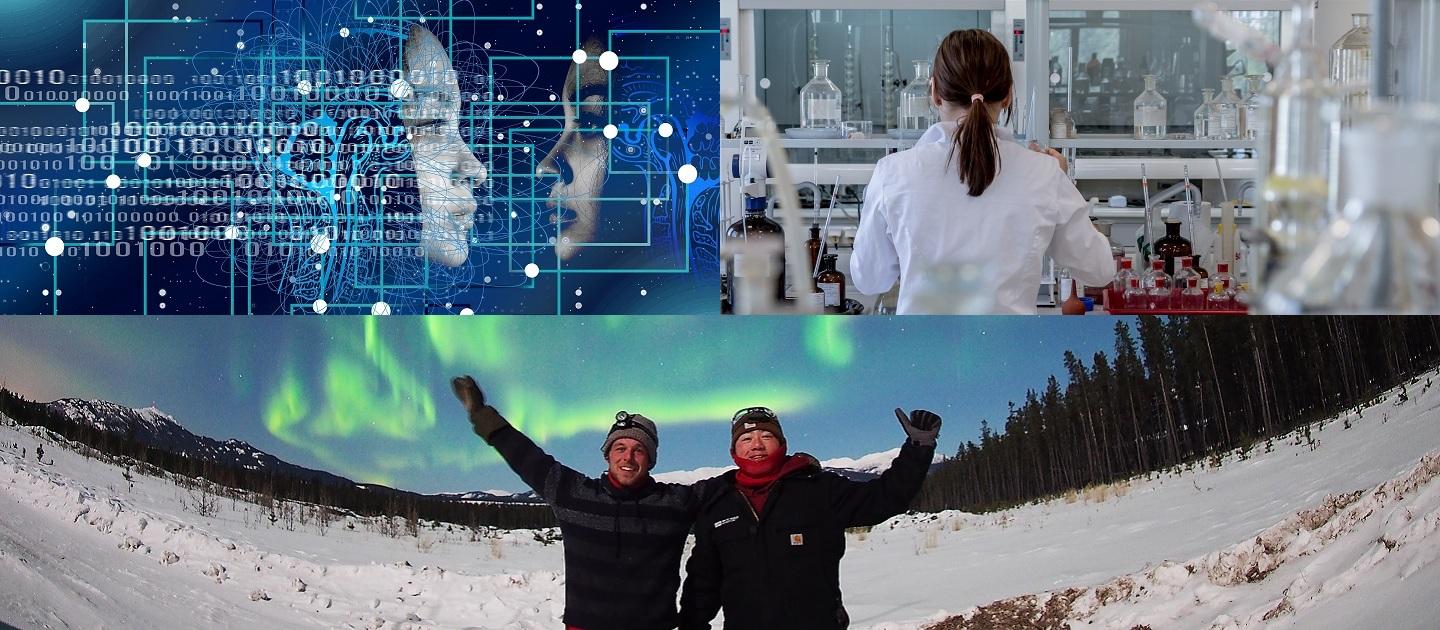Looking forward. How innovation across a variety of industries is helping attract global business events to Canada.
As we wind down an unprecedented year for global business events, we can’t help but pause and reflect on the myriad reasons why, when international business travel resumes, conference organizers and delegates will be making their way to Canada.
Canada has always been an alluring choice for hosting international business events. Its reputation for safety and affordability are well respected, and as conference organizers know, Canada offers a wealth of advanced industries to aid planners in creating purpose-driven events: content-rich conferences designed to engage audiences and expand organizational reach. In other words, exactly the sort of events audiences will be seeking once in-person meetings can resume.
Virginie DeVisscher, senior director of business development, economic sectors for Destination Canada Business Events points to Canada’s naturally collaborative culture, and the country’s leadership in technology, life sciences and natural resources (amongst others), as “playing key roles in attracting global business events to Canadian innovation hubs.”
Download all of our sector brochures.
In Canada, a number of urban destinations are advanced technology ecosystems: from Ottawa’s expertise in CAV technologies to Edmonton’s respected leadership in machine learning, to Vancouver’s growing data analytics, data science and cloud computing expertise that attracts events like Teradata’s Global Demand Creation Training year over year. There’s no shortage of alluring destinations to host tech events in Canada. Case in point: Montréal. A global hub for research and excellence in artificial intelligence (AI), the city’s strong academic base at McGill University and the University of Montréal, (where Professor Yoshua Bengio, the leading expert in the field conducts research) has attracted major digital players such as Google, Microsoft, IBM, Samsung, Thalès and Facebook, all of which have set up AI research labs in the city.

The city’s specialized subject matter experts and thought leaders have helped attract events like World Summit AI North America, a multi-year conference, to this diverse cultural innovation hub. “When organizations choose to host their event in Canada, they gain access to some of the world’s safest, greenest, creative and culturally diverse destinations,” says DeVisscher. “By contacting us early in the bid process, as organizers of World Summit AI North America did, we can help planners connect with their industry’s thought leaders and innovators and locate their meetings in world-class knowledge centres.”

Such was the case in Saskatoon, where leadership in nuclear research related to life sciences helped attract the World Council on Isotopes’ 11th International Conference to this prairie life sciences hub. Here, the University of Saskatchewan is using disruptive technology to produce isotopes for medical diagnostics without the use of a nuclear reactor, and without creating radioactive waste. Having an opportunity to understand these new technologies developed through Canadian Isotopes Innovation, a branch of the University of Saskatchewan-owned Canadian Light Source, is just one of the benefits of hosting the 2022 event in Saskatoon.

Looking forward. How innovation across a variety of industries is helping attract global business events to Canada.
As we wind down an unprecedented year for global business events, we can’t help but pause and reflect on the myriad reasons why, when international business travel resumes, conference organizers and delegates will be making their way to Canada.
Canada has always been an alluring choice for hosting international business events. Its reputation for safety and affordability are well respected, and as conference organizers know, Canada offers a wealth of advanced industries to aid planners in creating purpose-driven events: content-rich conferences designed to engage audiences and expand organizational reach. In other words, exactly the sort of events audiences will be seeking once in-person meetings can resume.
Virginie DeVisscher, senior director of business development, economic sectors for Destination Canada Business Events points to Canada’s naturally collaborative culture, and the country’s leadership in technology, life sciences and natural resources (amongst others), as “playing key roles in attracting global business events to Canadian innovation hubs.”
Download all of our sector brochures.
In Canada, a number of urban destinations are advanced technology ecosystems: from Ottawa’s expertise in CAV technologies to Edmonton’s respected leadership in machine learning, to Vancouver’s growing data analytics, data science and cloud computing expertise that attracts events like Teradata’s Global Demand Creation Training year over year. There’s no shortage of alluring destinations to host tech events in Canada. Case in point: Montréal. A global hub for research and excellence in artificial intelligence (AI), the city’s strong academic base at McGill University and the University of Montréal, (where Professor Yoshua Bengio, the leading expert in the field conducts research) has attracted major digital players such as Google, Microsoft, IBM, Samsung, Thalès and Facebook, all of which have set up AI research labs in the city.

The city’s specialized subject matter experts and thought leaders have helped attract events like World Summit AI North America, a multi-year conference, to this diverse cultural innovation hub. “When organizations choose to host their event in Canada, they gain access to some of the world’s safest, greenest, creative and culturally diverse destinations,” says DeVisscher. “By contacting us early in the bid process, as organizers of World Summit AI North America did, we can help planners connect with their industry’s thought leaders and innovators and locate their meetings in world-class knowledge centres.”

Such was the case in Saskatoon, where leadership in nuclear research related to life sciences helped attract the World Council on Isotopes’ 11th International Conference to this prairie life sciences hub. Here, the University of Saskatchewan is using disruptive technology to produce isotopes for medical diagnostics without the use of a nuclear reactor, and without creating radioactive waste. Having an opportunity to understand these new technologies developed through Canadian Isotopes Innovation, a branch of the University of Saskatchewan-owned Canadian Light Source, is just one of the benefits of hosting the 2022 event in Saskatoon.

Collaboration is part of the Canadian cultural DNA
De Visscher notes that collaborating with the wider ecosystem opens up the opportunity for unique networking events, technical site visits, thought-provoking local speakers, and helps organizers create meaningful, purpose-driven content that will attract delegates to their event. “Often, gaining access to those opportunities is the work of local ambassadors who champion events in their communities.” In Québec City, a well respected hub of life sciences research, the work of Luc Vallières, a professor in the Department of Molecular Medicine, Université Laval Neuroscience Unit, CHU de Québec Research Center helped attract the 16th Congress of the International Society of Neuroimmunology to this historic city. Laurant Bouyer and Jean-Sébastien Roy, two researchers with the Faculty of Medicine at Université Laval showcased Québec City’s leadership in life sciences to bring the International Society for Electrophysiology and Kinesiology (ISEK) biennial conference to Québec City.
Collaboration is part of the Canadian cultural DNA
De Visscher notes that collaborating with the wider ecosystem opens up the opportunity for unique networking events, technical site visits, thought-provoking local speakers, and helps organizers create meaningful, purpose-driven content that will attract delegates to their event. “Often, gaining access to those opportunities is the work of local ambassadors who champion events in their communities.” In Québec City, a well respected hub of life sciences research, the work of Luc Vallières, a professor in the Department of Molecular Medicine, Université Laval Neuroscience Unit, CHU de Québec Research Center helped attract the 16th Congress of the International Society of Neuroimmunology to this historic city. Laurant Bouyer and Jean-Sébastien Roy, two researchers with the Faculty of Medicine at Université Laval showcased Québec City’s leadership in life sciences to bring the International Society for Electrophysiology and Kinesiology (ISEK) biennial conference to Québec City.
Innovation fuels Canada’s natural resources sector
Canada’s vast landscape and diverse geography make it a singular location for research and the only place in the world to access particular innovations. In The Yukon, Kryotek Arctic Innovation, a Whitehorse-based geoscience company specializing in permafrost related issues, has developed and is field-testing a permafrost thaw detector. This device can gather and transmit highly accurate real-time information on permafrost thaw, providing an early warning system to avoid damage to infrastructure and track emissions of greenhouse gasses from thawing permafrost. Why is this a big deal? Because it’s exactly this sort of access to new ideas that scientists attending the 13th International Conference on Permafrost can look forward to when they meet in Whitehorse in 2024.

Similarly, when the International Kimberlite Conference convenes in Yellowknife, Northwest Territories in 2022, delegates will take part in a combination of formal technical presentations and field excursions to major diamond deposits — in one of the first jurisdictions in the world to ethically source diamonds — to share knowledge, stimulate scientific debate and to further the understanding of the geology of kimberlites, diamonds and related subjects. The event coincides with the 30th anniversary of the discovery of kimberlite deposits across Canada which spurred the development of seven diamond mines, making Canada one of the top three diamond producers in the world by value.
Innovation fuels Canada’s natural resources sector
Canada’s vast landscape and diverse geography make it a singular location for research and the only place in the world to access particular innovations. In The Yukon, Kryotek Arctic Innovation, a Whitehorse-based geoscience company specializing in permafrost related issues, has developed and is field-testing a permafrost thaw detector. This device can gather and transmit highly accurate real-time information on permafrost thaw, providing an early warning system to avoid damage to infrastructure and track emissions of greenhouse gasses from thawing permafrost. Why is this a big deal? Because it’s exactly this sort of access to new ideas that scientists attending the 13th International Conference on Permafrost can look forward to when they meet in Whitehorse in 2024.

Similarly, when the International Kimberlite Conference convenes in Yellowknife, Northwest Territories in 2022, delegates will take part in a combination of formal technical presentations and field excursions to major diamond deposits — in one of the first jurisdictions in the world to ethically source diamonds — to share knowledge, stimulate scientific debate and to further the understanding of the geology of kimberlites, diamonds and related subjects. The event coincides with the 30th anniversary of the discovery of kimberlite deposits across Canada which spurred the development of seven diamond mines, making Canada one of the top three diamond producers in the world by value.
Content will still be king
Competition for delegate engagement has always been fierce, but De Visscher notes that organizations who can adapt their event strategies to create purpose-driven, content-rich and content-relevant events will be the ones forging the way forward for the meetings industry.
Canada can show you the way
Canada will be ready to support the thoughtful, strategic return of purpose-fueled events when the time is right. Connect with the sector experts at Destination Canada Business Events to tap into our innovation ecosystems for your next event.
Content will still be king
Competition for delegate engagement has always been fierce, but De Visscher notes that organizations who can adapt their event strategies to create purpose-driven, content-rich and content-relevant events will be the ones forging the way forward for the meetings industry.
Canada can show you the way
Canada will be ready to support the thoughtful, strategic return of purpose-fueled events when the time is right. Connect with the sector experts at Destination Canada Business Events to tap into our innovation ecosystems for your next event.
